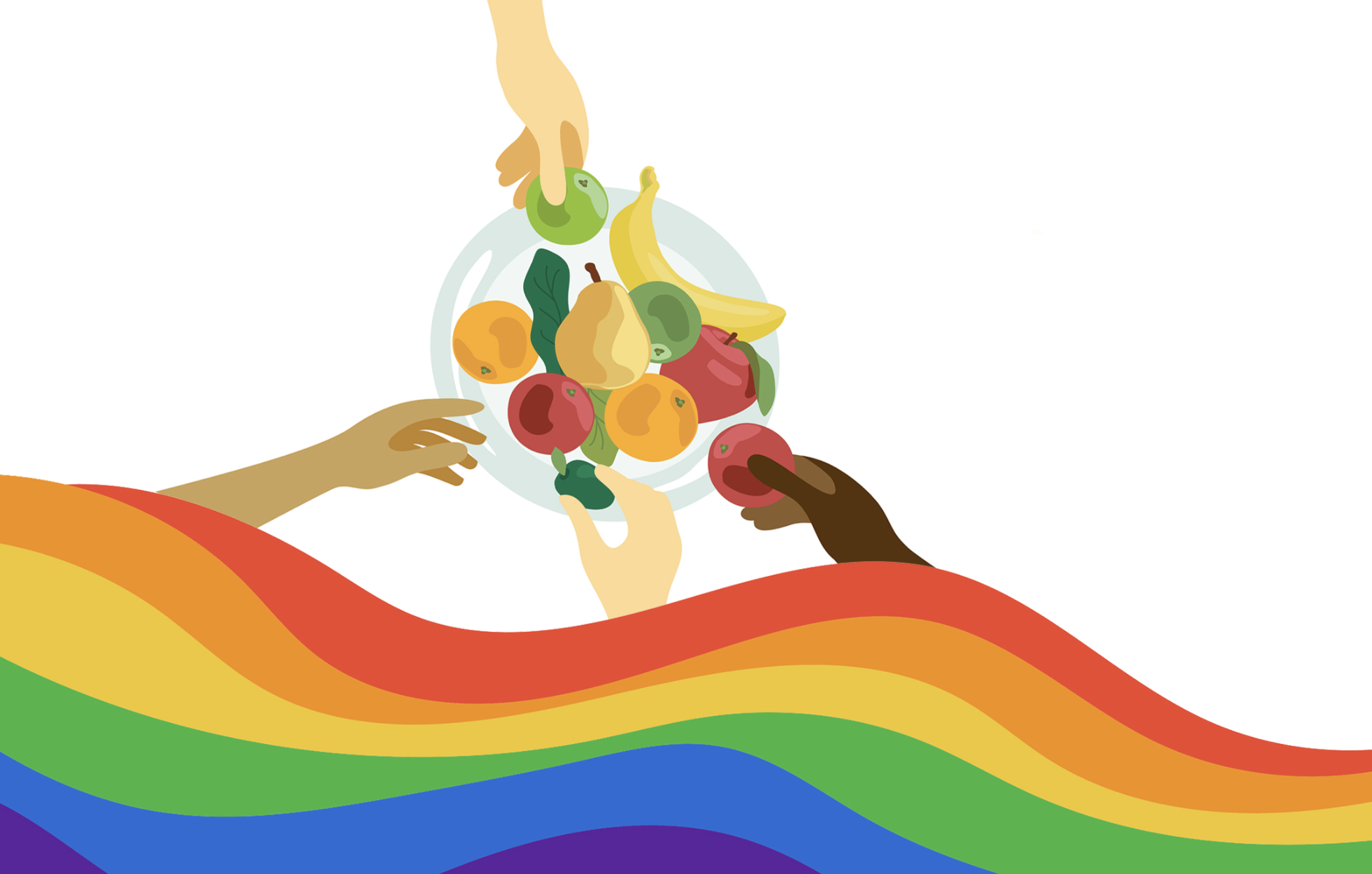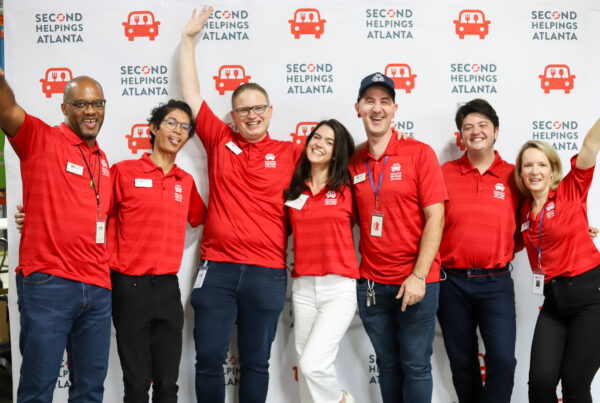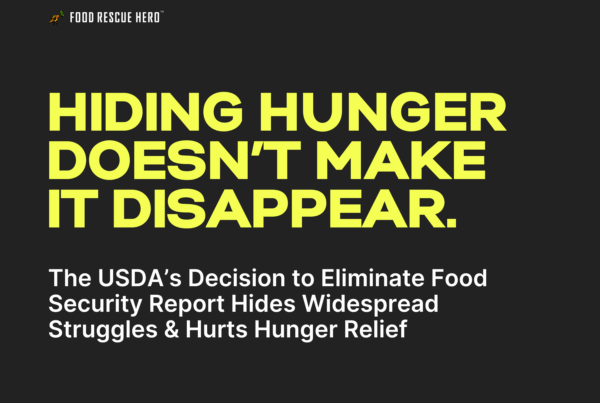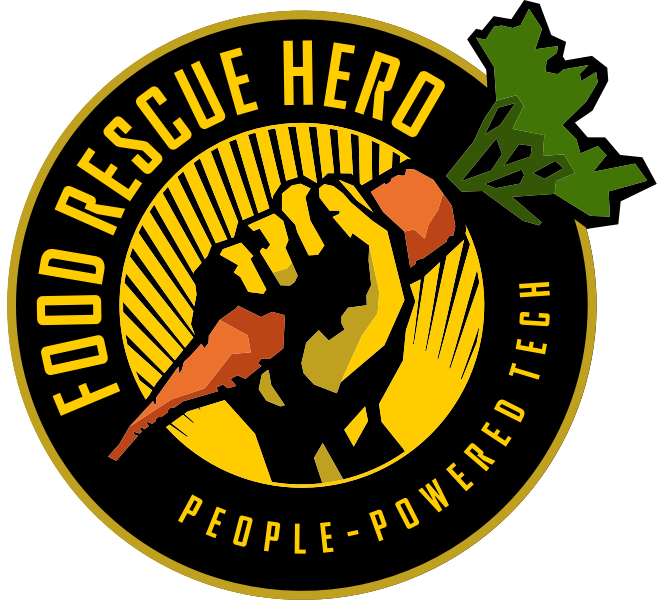“Folks need to feel safe when seeking help.”
Happy Pride Month! 🌈 As we celebrate the LGBTQIA+ community this month, bringing awareness to the community’s unique challenges is essential to understand the necessity of Pride. Despite substantial social progress over the past decades, queer people still live at a disadvantage compared to non-queer people.
While food insecurity is an issue faced by the general population, the Food Research & Action Center reports 15 percent of LGBT adults and 19.3 percent of people who identified as another sexual orientation (e.g., intersex, asexual) reported not having enough to eat, compared to 10.4 percent among non-LGBT adults. The gap widens when taking race and gender into account:
- More than a third of transgender people of color (35.8%) sometimes or often did not have enough to eat in the prior week as compared with 12.6% of cisgender people of color, 17.1% of transgender White people and 6.0% of cisgender White people.
- Trans adults face food insecurity at almost three times the rate of non-trans adults.
- Nearly six times as many transgender people of color as cisgender White people experience food insufficiency. 2
Many of our North American communities have a rich queer history and a thriving queer present filled with art, music, creativity, and love. However, without having basic needs met, such as access to food, many in the community are disproportionately hindered. How would our tight-knit communities be affected if there was greater food access? How would we all be affected if there was greater food access?
At Food Rescue Hero, we are seeking the answer to that question through our mission to get good food into the hands of the community, not landfills. The volunteer network of #FoodRescueHeroes spread between our Partner Network is dedicated to increasing food access by feeding our neighbors and preventing good food from going to waste. Combating food waste and food insecurity is an intersectional issue. LGBTQIA+ adults, like other minorities, often face discrimination and stigma within their homes and social environments. They also experience higher rates of poverty and have less access to employment opportunities, social support, and healthcare services. These combined factors contribute to elevated levels of food insecurity. 3
Our queer neighbors are some of the most vulnerable in the community. With queerness becoming increasingly targeted at the legislative level in the United States, protecting and nourishing the queer community has grown increasingly vital. The Food Rescue platform offers the opportunity for volunteers to help advocate for the queer community and to help combat hunger in their communities.
Our Pittsburgh partners, 412 Food Rescue, shared this story from their nonprofit partner, the Persad Center:
“The donations from 412 Food Rescue have been an amazing help to many clients and LGBTQIA+ community members in need that come through the doors of Persad Center. We greatly value and appreciate the partnership to make sure that the donated foods are not going to waste. That appreciation is shared by the folks that use our pantry: homeless, transgender, victims, families, low-income, jobless, and some that are just going through a rough patch. Smiles, tears, thank-yous and hugs. Access to services sometimes gets blocked due to fear and the marginalized treatment of many members of the LGBTQIA+ community. Folks need to feel safe when seeking help and this partnership does so much for Persad Center’s mission and the larger community.”
– Tony Kuhar, Facility & Operations Coordinator, Persad Center
As Tony points out, “folks need to feel safe when seeking help.” Current systems may prohibit minorities from seeking the help that they need, so it is vital to meet people where they are and help them there. For this reason, we are proud to have nonprofit partners helping to meet members of the LGBTQIA+ community where they are.
Not all members of a community are on an even playing field and many of our neighbors face challenges that we may be unaware of. Often, the necessity of Pride Month is called into question, and food insecurity is one of the social inequalities that the LGBTQIA+ community faces at a disproportionate rate. We are proud to help bridge the gap of need – for all.
Actions for Advocates
- Support the Equality Act to establish federal nondiscrimination protections. Connecting with LGBTQIA+ centers or organizations in your area can also help you to be aware of and support opportunities at the state level.
- Connect LGBTQIA+ individuals and families with low incomes to federal nutrition programs. Check out this federal nutrition program factsheet and program chart for LGBTQIA+ communities produced by Food Research & Action Center (FRAC) and the National Center for Lesbian Rights (NCLR). Learn more about and promote the U.S. Department of Agriculture civil rights protections related to gender identity, including gender expression, and sexual orientation.






